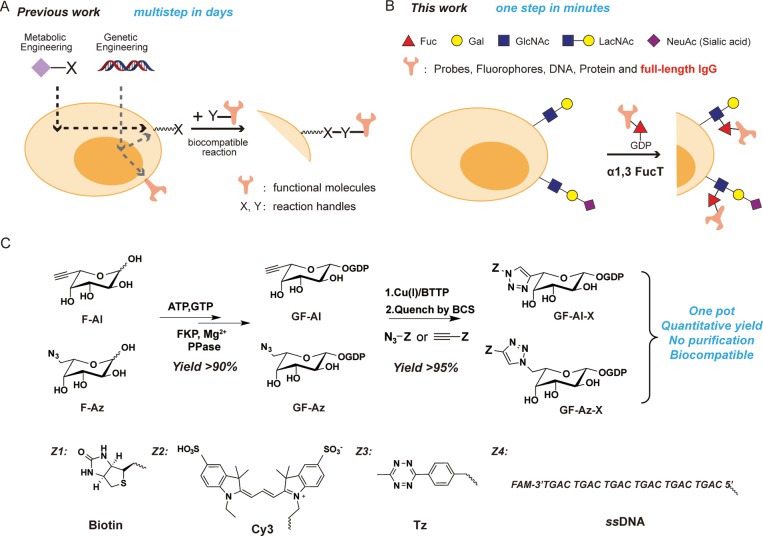Figure 1.
One-step fucosylation-based strategy for cell-surface engineering: (A) Two representative cell-surface engineering approaches. Metabolic engineering is used to install a reaction handle (X) onto the surface of the cell, which can react with a complementary handle (Y) on a molecule of interest. Genetic engineering allows the direct expression of functional molecules or the installation of reaction handles (X) on the surfaces of cells. (B) This work reports on an enzymatic glycoengineering approach capable of transferring a variety of functional molecules to the surfaces of cells in one step. The reaction between LacNAc/sialyl LacNAc and GDP-Fucose derivatives on the surfaces of cells is enabled by H. pylori α1,3FucT that tolerates modifications as large as a whole IgG conjugated at the C6 position of fucose. (C) One-pot protocol for the synthesis of GF-Al and GF-Az derivatives. The new functional group (Z) conjugated to fucose includes bioorthogonal handles (tetrazine, Tz), biophysical probes (biotin, Cy3), and biomaterials (ssDNA).

